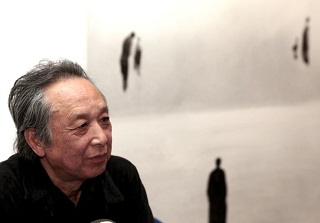De Chinese schrijver Gao Xingjian werd geboren op 4 januari 1940 in Ganzhou, in de provincie Jiangxi. Zie ook alle tags voor Gao Xingjian op dit blog.
Uit: One Man’s Bible (Vertaald door Mabel Lee)
“It was not that he didn’t remember he once had another sort of life. But, like the old yellowing photograph at home, which he did not burn, it was sad to think about, and far away, like another world that had disappeared forever. In his Beijing home, confiscated by the police, he had a family photo left by his dead father: it was a happy gathering, and everyone in the big family was present. His grandfather who was still alive at the time, his hair completely white, was reclined in a rocking chair, paralyzed and unable to speak. He, the eldest son and eldest grandson of the family, the only child in the photo, was squashed between his grandparents. He was wearing slit trousers that showed his little dick, and he had on his head an American-style boat-shaped cap. At the time, the eight-year War of Resistance against the Japanese had just ended, and the Civil War had not properly started. The photograph had been taken on a bright summer day in front of the round gateway in the garden, which was full of golden chrysanthemums and purple-red cockscombs. That was what he recalled of the garden, but the photo was water-stained and had turned a grayish yellow. Behind the round gateway was a two story, English-style building with a winding walkway below and a balustrade upstairs. It was the big house he had lived in. He recalled that there were thirteen people in the photograph — an unlucky number — his parents, his paternal uncles and aunts, and also the wife of one of the uncles. Now, apart from an aunt in America and himself, all of them and the big house had vanished from this world.

Gao Xingjian (Ganzhou, 4 januari 1940)
